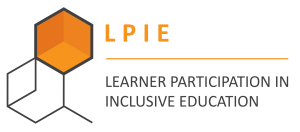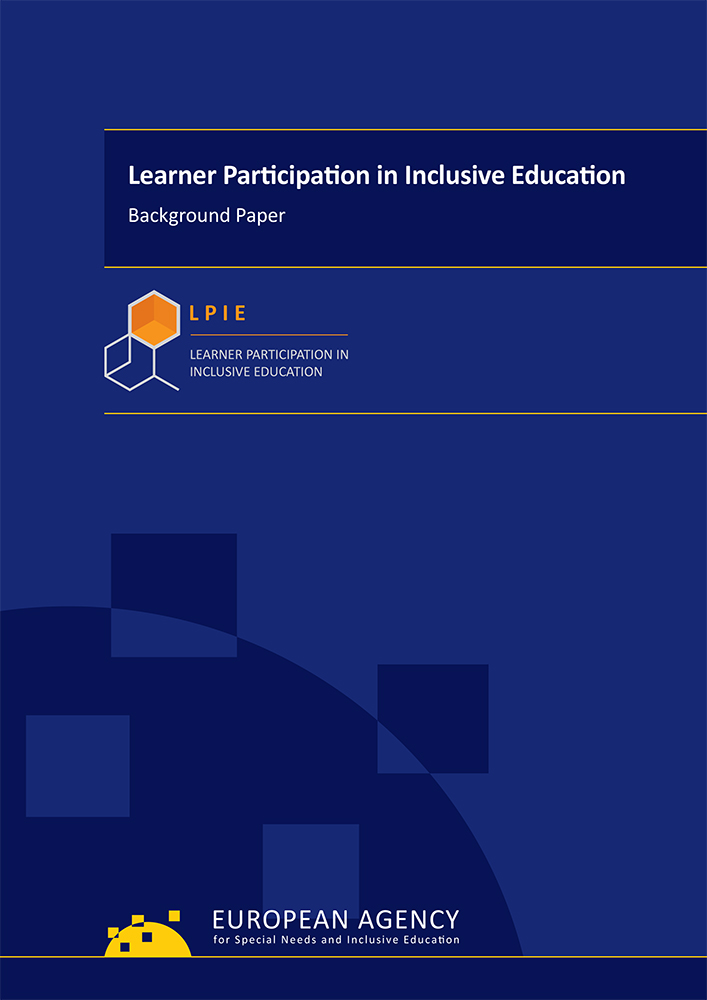The Learner Participation in Inclusive Education (LPIE) activity focuses on gathering and using meaningful qualitative data on learners’ socio-emotional participation in inclusive education. This data helps improve inclusive education policy implementation.
This activity is one of six within EASNIE’s Thematic Country Cluster Activities (TCCA). Each activity involves collaboration between a small group, or cluster, of EASNIE member countries. LPIE is Cluster 1. TCCA focuses on member countries’ priorities and addresses country requests for more tailored activities to support policy development needs and build upon learning points from other EASNIE activities. The clusters aim to support countries in their efforts to promote continuous improvement for all stakeholders across the whole inclusive education system. For more information, visit the TCCA web area.
In the first year of LPIE, the cluster countries identified the available qualitative data (or lack thereof) in their countries to monitor and evaluate learner participation in inclusive education. The second year will further explore learners’ socio-emotional participation in inclusive education at both individual and classroom levels.
Activity framework
The 2024 literature review Towards a Multi-Level, Multi-Stakeholder Quality Assurance, Monitoring and Accountability Framework is the foundation for planning and preparing the first TCCA cycle (2023–2025). It discusses recent findings from international and academic literature related to the three TCCA priority areas, which are inter-connected and inter-dependent.
LPIE focuses on the priority area of monitoring and evaluation. The term ‘participation’ is central to the activity, so a first step was to establish a working definition of the term suitable for LPIE. Discussions around participation in the early stages of the activity led the LPIE countries to focus on socio-emotional participation, as data in this field is lacking when it comes to monitoring and evaluation for improving inclusive education policy implementation.
LPIE aims to support countries to collect and use qualitative data to evaluate the socio-emotional participation of all learners, especially those vulnerable to exclusion.
Participants and target group
The LPIE cluster countries are Czech Republic, Estonia, Lithuania, Netherlands, Portugal and United Kingdom (Scotland).
The target group includes policy-makers from EASNIE member countries, as well as learners, teachers and school communities. The participatory approach that is suggested for the data collection will impact the participants (learners and teachers) during the data collection processes. Stakeholder consultations during the LPIE activity will include focus group discussions and other exchanges. Policy-makers actively participate in co-developing the LPIE activity and in peer-learning activities with other stakeholders.
Aims
The LPIE activity’s overall goal is to explore strategies for meaningful qualitative data collection on learner participation in inclusive education and the use of this data.
LPIE particularly aims to:
- map countries’ data collection and analysis systems in the context of learner participation in inclusive education, highlighting their strengths and challenges;
- identify essential characteristics and critical features of meaningful data collection on learner participation in inclusive education;
- present promising examples of meaningful data collection and analysis that support successful inclusive education policy implementation.
The key questions that the activity seeks to answer are:
- What data is needed to provide policy-makers with meaningful information on learner participation in inclusive education?
- How do countries define meaningful data on learner participation? What is meaningful data in each country context and what are the differences and similarities?
- What are the current barriers/challenges/gaps in collecting and understanding meaningful data on learner participation in inclusive education?
- How can stakeholders and policy-makers build capacity to collect and then use meaningful data on learner participation in inclusive education to close policy implementation gaps?
Activities and outputs
The activity has three phases: preparatory, implementation and dissemination.
Preparatory phase
During this phase, the LPIE cluster identified the key area and developed the cluster activity plan (CAP).
Implementation phase
This phase has several steps. The first step is to explore in detail the key area of collecting and using meaningful data on learners’ socio-emotional participation in inclusive education. The next steps focus on gathering data on learners’ socio-emotional participation at individual and classroom levels. These steps involve teachers and learners.
The LPIE Background Paper is an output from this phase.
Dissemination phase
The final outputs will describe critical features of collecting meaningful data on learners’ socio-emotional participation in inclusive settings and using that data to improve inclusive education policy implementation. Furthermore, the outputs will lead to evidence-based recommendations for collecting meaningful data and capacity-building strategies for collecting and using data on learner participation in inclusive education.


